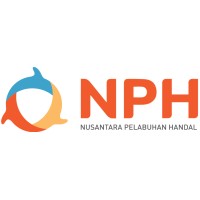
PT Nusantara Pelabuhan Handal Tbk
NPH was established in December 2003 as PT Kharisma Mutiara Agung Our vision to be a reputable global player in port business through innovative solution Our Business Terminal operation and Port Equipment Supply



NPH was established in December 2003 as PT Kharisma Mutiara Agung Our vision to be a reputable global player in port business through innovative solution Our Business Terminal operation and Port Equipment Supply

As the custodian of ports, rail and pipelines, Transnet’s objective is to ensure a globally competitive freight system that enables sustained growth and diversification of the country’s economy. As a state-owned company, Transnet continues to leave an indelible mark on the lives of all South Africans. With a geographical footprint that covers our entire country, Transnet is inextricably involved in all aspects of life in South Africa. Through the Transnet Foundation - which is the Corporate Social Investment arm of Transnet - we have invested time and money in several diverse programmes around the country that provide much-needed succour to our communities. Looking ahead, Transnet is focused on modernizing infrastructure, driving growth, and enhancing efficiency through strategic partnerships. Our vision is clear: to contribute meaningfully to South Africa’s economic aspirations through sustainable growth and modernization.
Security & Compliance Standards Overview












No incidents recorded for PT Nusantara Pelabuhan Handal Tbk in 2025.
No incidents recorded for Transnet SOC Ltd in 2025.
PT Nusantara Pelabuhan Handal Tbk cyber incidents detection timeline including parent company and subsidiaries
Transnet SOC Ltd cyber incidents detection timeline including parent company and subsidiaries
Angular is a development platform for building mobile and desktop web applications using TypeScript/JavaScript and other languages. Prior to versions 19.2.16, 20.3.14, and 21.0.1, there is a XSRF token leakage via protocol-relative URLs in angular HTTP clients. The vulnerability is a Credential Leak by App Logic that leads to the unauthorized disclosure of the Cross-Site Request Forgery (XSRF) token to an attacker-controlled domain. Angular's HttpClient has a built-in XSRF protection mechanism that works by checking if a request URL starts with a protocol (http:// or https://) to determine if it is cross-origin. If the URL starts with protocol-relative URL (//), it is incorrectly treated as a same-origin request, and the XSRF token is automatically added to the X-XSRF-TOKEN header. This issue has been patched in versions 19.2.16, 20.3.14, and 21.0.1. A workaround for this issue involves avoiding using protocol-relative URLs (URLs starting with //) in HttpClient requests. All backend communication URLs should be hardcoded as relative paths (starting with a single /) or fully qualified, trusted absolute URLs.
Forge (also called `node-forge`) is a native implementation of Transport Layer Security in JavaScript. An Uncontrolled Recursion vulnerability in node-forge versions 1.3.1 and below enables remote, unauthenticated attackers to craft deep ASN.1 structures that trigger unbounded recursive parsing. This leads to a Denial-of-Service (DoS) via stack exhaustion when parsing untrusted DER inputs. This issue has been patched in version 1.3.2.
Forge (also called `node-forge`) is a native implementation of Transport Layer Security in JavaScript. An Integer Overflow vulnerability in node-forge versions 1.3.1 and below enables remote, unauthenticated attackers to craft ASN.1 structures containing OIDs with oversized arcs. These arcs may be decoded as smaller, trusted OIDs due to 32-bit bitwise truncation, enabling the bypass of downstream OID-based security decisions. This issue has been patched in version 1.3.2.
Suricata is a network IDS, IPS and NSM engine developed by the OISF (Open Information Security Foundation) and the Suricata community. Prior to versions 7.0.13 and 8.0.2, working with large buffers in Lua scripts can lead to a stack overflow. Users of Lua rules and output scripts may be affected when working with large buffers. This includes a rule passing a large buffer to a Lua script. This issue has been patched in versions 7.0.13 and 8.0.2. A workaround for this issue involves disabling Lua rules and output scripts, or making sure limits, such as stream.depth.reassembly and HTTP response body limits (response-body-limit), are set to less than half the stack size.
Suricata is a network IDS, IPS and NSM engine developed by the OISF (Open Information Security Foundation) and the Suricata community. In versions from 8.0.0 to before 8.0.2, a NULL dereference can occur when the entropy keyword is used in conjunction with base64_data. This issue has been patched in version 8.0.2. A workaround involves disabling rules that use entropy in conjunction with base64_data.